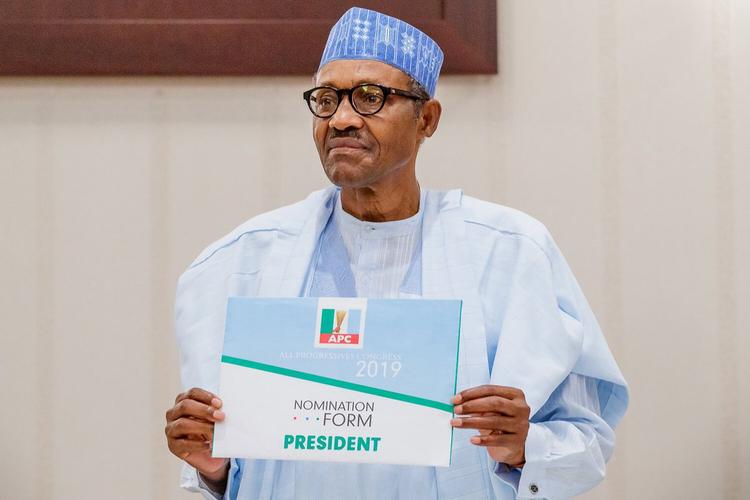
In Nigeria, you need as much as US$125,000 to buy a presidential nomination form. These exorbitant amounts are aimed to keep the highest political office in the hands of the monied, the connected and the corrupt.
If you were a presidential hopeful who wanted to contest for the presidency under the two major political parties in Nigeria, the first thing you would need is, at the lowest end, US$33 000 (12 million Naira) or, at the top end, US$125,000 (45 million Naira). That is just to buy the presidential nomination forms.
These exorbitant amounts charged to get the presidential ticket have led to the disenfranchisement of those who do not have such huge amounts of money. It has also led to many politicians borrowing money from the bank. Think about it: How would an office holder pay back such a large sum of money if he was not planning to steal? This is part of the story of politics in Nigeria.
Nigeria’s former Minister of Education, Obiageli Ezekwesili, who started the Red Card Movement to kick away the People’s Democratic Party, which had ruled the country since 1999, and the All Progressives Congress, under which Muhammadu Buhari contested last year, said on Twitter: “When I decide to run for elective office, no way any party that charges above N100,000 for nomination forms would get my membership. I would not want some amoeba group paying for my form with money that has an opaque source. Also, I’ll do transparent fund raising.”
Ezekwesili has been critical of Buhari’s government on matters of governance and for the government’s failure to tackle Boko Haram and rescue the remaining Chibok girls.
Much has been made of the passing of the #NotTooYoungToRun Bill, but young people remain unable to contest for the various positions due to the exorbitant amounts that some political parties are demanding. In 2015, the People’s Democratic Party charged US$61 000 (22 million Naira) per nomination form. Currently it charges US$33 000 (Naira 12 million). The All Progressives Congress, under which President Buhari ran for president, charged US$76 000 (27,5 million Naira), but currently charges US$125 000 (Naira 45 million).
For a country with a high unemployment rate and a monthly minimum wage of US$50 (18,000 Naira), how does one reconcile such a wasteful amount for getting a party ticket to serve the people? Clearly, the political system in Nigeria is one that still hinges on who has the most money and not who has the best ideas. The recycling of corrupt members of the House of Representatives, senators, governors and presidents becomes what the country gets stuck with. For a country that is supposedly bent on fighting corruption, the fight has certainly started in the wrong place.
Nigeria is not the only country with such exorbitant election fees. The neighbouring Benin Republic increased the cost of its presidential nomination form to US$441,000.
It is easy to read between the lines: Making power expensive to get is equal to keeping power at all expense. While this is not yet the case in all African countries, like Kenya, for example, it is definitely something for citizens to watch out for.
- Socrates Mbamalu was born in Nigeria and grew up in Kenya. He is a 2016 Saraba Nonfiction Manuscript prize awardee. He can be reached on Twitter: @linsoc


